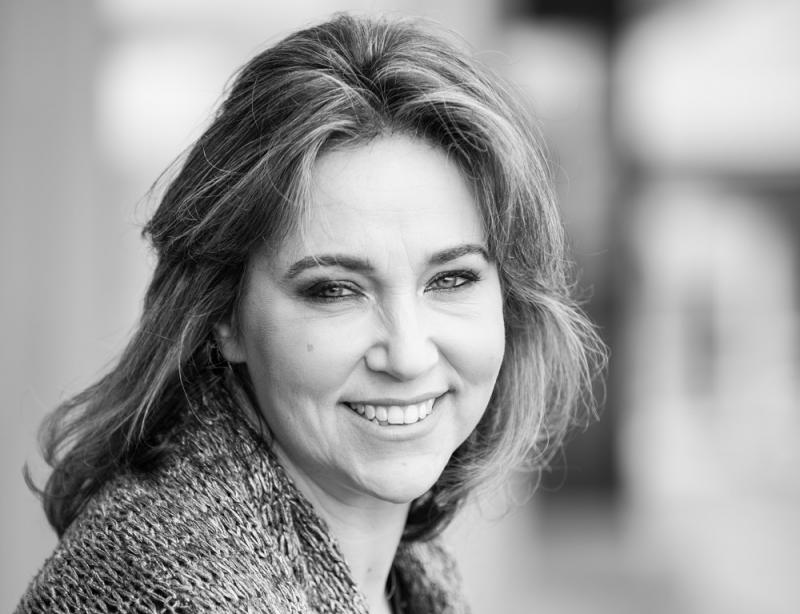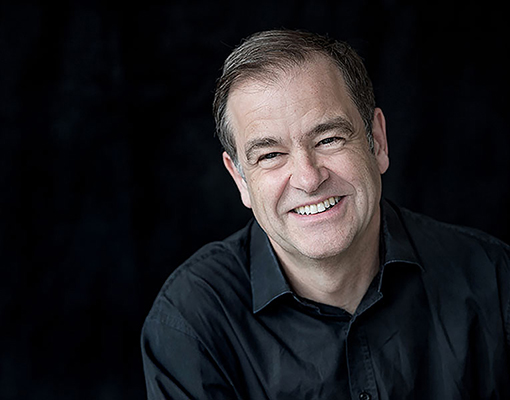Christine Rice, Julius Drake, Middle Temple Hall | reviews, news & interviews
Christine Rice, Julius Drake, Middle Temple Hall
Christine Rice, Julius Drake, Middle Temple Hall
Glorious abandonment and perfect technique from one of the world's great mezzos

To catch the searing desolation of a lover scorned, you need to be the complete artist, with temperament and technique in perfect equilibrium. Mezzo Christine Rice has taken us from Berlioz's Marguerite and Mozart's Donna Elvira at English National Opera via Birtwistle's Ariadne to Haydn's, and - most taxing of all - the end of an affair by telephone in Poulenc's La Voix Humaine.
Of our three great British mezzos, Rice is poised somewhere between the refinement, sometimes verging on the chilly, of Sarah Connolly and the go-for-broke intensity of Alice Coote. This was a programme of supreme daring. The two monologues, in effect one-act operas, were separated by Ravel songs in five languages - Spanish, French, Italian, Yiddish and Hebrew - in what could have been an intermezzo but ended up in equal intensity: Rice's vivid characterisation of the dialogue between inquiring Jewish father and his piously rapturous son segued straight into what in effect became the boy's hymn of priase, a Kaddish of mesmerising power. The flashing power of Cancion española suggested that a whole evening of Falla, Obradors and Mompou from this chameleonic artist and her pianist would be utterly beguiling and idiomatic.
 At the heart of it all, the simple Chanson italienne crystallised the essence of the outer core ("I call my love, no one answers"). Haydn's Arianna a Naxos, for all Drake's supreme stylishness in the introduction (the pianist pictured right by Sim Canetty Clark), starts out as if it intends to proceed at the same anodyne level of too much in the composer's too many operas. But this, after all, is Ariadne with the breath of Theseus still fresh on her face (hand on cheek, self-caresses said it all in Rice's modulated and utterly convincing body language). Only in the second recitative is she allowed to explode with the grief of abandonment realised. Haydn's depiction of her legs giving way in the piano's modulations is truly remarkable, paving the way for the drive of the second aria.
At the heart of it all, the simple Chanson italienne crystallised the essence of the outer core ("I call my love, no one answers"). Haydn's Arianna a Naxos, for all Drake's supreme stylishness in the introduction (the pianist pictured right by Sim Canetty Clark), starts out as if it intends to proceed at the same anodyne level of too much in the composer's too many operas. But this, after all, is Ariadne with the breath of Theseus still fresh on her face (hand on cheek, self-caresses said it all in Rice's modulated and utterly convincing body language). Only in the second recitative is she allowed to explode with the grief of abandonment realised. Haydn's depiction of her legs giving way in the piano's modulations is truly remarkable, paving the way for the drive of the second aria.
The move from luminous tenderness remembered to reverberating anguish unleashed lacerating music-drama underpinned by flawless technique and a voice seamless from bottom to top. How much more did a similar, more psychological journey impact in the much longer Poulenc/Cocteau monologue. You might at some points miss the lushness of the composer's sensuous, smoky orchestration, but the gain was in total rapport between pianist and singer, pauses and silences pregnant with anguish or expectation. It was wise of Temple Music's Song Series not to print a translation or to have supertitles; you needed to see every expression on the face of Rice's woman on the verge of a nervous breakdown, understand the impetus behind every word even if your French, like mine, was imperfect.
Neither Drake nor Rice put a foot wrong as the constantly interrupted phone conversation with the lover who's ended the relationship shifts from putting on a brave face to a courageous cantilena of truthfulness, the seemingly endless depth and richness of the mezzo voice with its flawless upper register resonating around the hall. Never at any point was the sound forced other than to make a point of extreme desperation. The endgame was all the more devastating for the piano bringing into focus the final, funereal motif, seemingly an adaptation of a theme from one of Chopin's Etudes, and for the way Rice continued to ring the changes on the simple words "je t'aime". Absolutely remarkable, an out-of-body experience. Now I long to see and hear her in Britten's Phaedra, the other great mini-opera in all but name.

Add comment